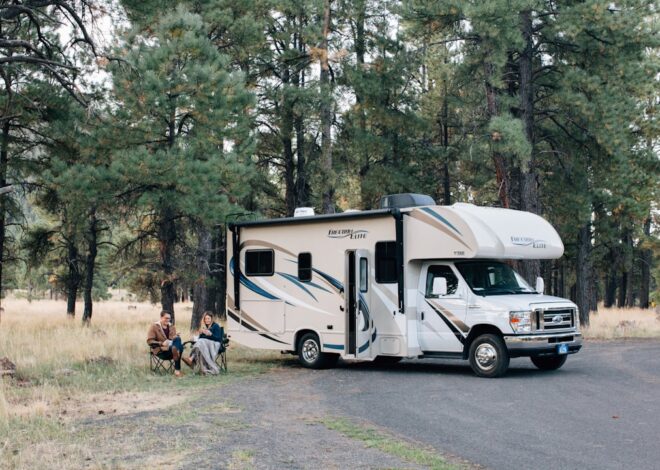
Exploring Bali: A Travel Nurse’s Guide
Bali, often referred to as the “Island of the Gods,” is a stunning Indonesian paradise that has captivated travelers from around the globe. Known for its lush landscapes, vibrant culture, and warm hospitality, Bali offers a unique blend of natural beauty and rich traditions. The island is characterized by its picturesque rice terraces, pristine beaches, and volcanic mountains, making it a haven for nature lovers and adventure seekers alike.
Beyond its breathtaking scenery, Bali is steeped in spirituality, with numerous temples and ceremonies that reflect the island’s deep-rooted Hindu beliefs. The allure of Bali extends beyond its physical attributes; it is a place where ancient customs coexist harmoniously with modern influences. The island’s population is known for its friendliness and welcoming nature, which creates an inviting atmosphere for visitors.
As a travel nurse considering a stint in Bali, one can expect not only to immerse themselves in a new professional environment but also to experience a vibrant culture that celebrates art, music, and community. The combination of professional opportunities and cultural richness makes Bali an attractive destination for healthcare professionals seeking both career advancement and personal growth.
Key Takeaways
- Bali offers a unique blend of traditional and modern culture, making it an attractive destination for travel nurses.
- Healthcare and nursing opportunities in Bali are growing, with a demand for skilled professionals in both public and private healthcare facilities.
- Cultural and recreational activities in Bali include traditional dance performances, temple visits, and water sports, providing a rich and diverse experience for travel nurses.
- Safety and security tips for travel nurses in Bali include being aware of local customs, avoiding isolated areas at night, and staying updated on travel advisories.
- Local cuisine and dining experiences in Bali offer a wide range of options, from traditional Balinese dishes to international cuisine, providing a diverse culinary experience for travel nurses.
Healthcare and Nursing Opportunities in Bali
Bali’s healthcare system has evolved significantly over the years, with a growing demand for skilled healthcare professionals, including nurses. The island is home to several international hospitals and clinics that cater to both locals and expatriates. These facilities often seek qualified nurses who can provide high-quality care in various specialties, including emergency medicine, pediatrics, and critical care.
For travel nurses, this presents an exciting opportunity to gain experience in a diverse healthcare setting while contributing to the well-being of the local community. In addition to traditional healthcare roles, there are also opportunities for travel nurses to engage in holistic practices that are prevalent in Bali. The island is known for its wellness retreats and alternative medicine practices, such as yoga therapy and traditional Balinese healing techniques.
Nurses with an interest in integrative health may find unique opportunities to work alongside practitioners of these modalities, expanding their skill set while promoting wellness in a culturally rich environment. This blend of conventional and alternative healthcare practices makes Bali an intriguing destination for those looking to broaden their professional horizons.
Cultural and Recreational Activities in Bali

Bali is a treasure trove of cultural experiences that can enrich the lives of travel nurses during their time on the island. The island’s rich heritage is evident in its numerous temples, traditional dance performances, and vibrant festivals. One of the most iconic temples is Uluwatu Temple, perched on a cliff overlooking the Indian Ocean.
Visitors can witness the mesmerizing Kecak dance at sunset, a performance that tells stories from the Ramayana through intricate choreography and chanting. Engaging with these cultural activities not only provides insight into Balinese traditions but also fosters a deeper connection with the local community. Recreational activities abound in Bali, catering to a wide range of interests.
For those seeking adventure, the island offers opportunities for surfing, diving, and hiking. The famous surf breaks at Kuta Beach attract surfers from all over the world, while the coral reefs surrounding Nusa Lembongan provide excellent snorkeling and diving experiences. For those who prefer land-based activities, trekking up Mount Batur for sunrise is a popular choice, offering breathtaking views and a sense of accomplishment.
These recreational pursuits allow travel nurses to unwind after their shifts while exploring the natural beauty that Bali has to offer.
Safety and Security Tips for Travel Nurses in Bali
| Safety and Security Tips for Travel Nurses in Bali |
|---|
| Avoid walking alone at night in unfamiliar areas |
| Keep your personal belongings secure and be aware of pickpockets |
| Be cautious of your surroundings and trust your instincts |
| Stay updated on local news and any potential safety concerns |
| Ensure your accommodations have proper security measures in place |
| Research and understand local customs and laws to avoid any misunderstandings |
While Bali is generally considered a safe destination for travelers, it is essential for travel nurses to remain vigilant and take necessary precautions to ensure their safety. One of the primary concerns is petty crime, such as pickpocketing or bag snatching, particularly in crowded areas or tourist hotspots. To mitigate these risks, it is advisable to keep valuables secure and avoid displaying expensive items in public.
Utilizing hotel safes and being mindful of surroundings can significantly reduce the likelihood of encountering theft. Health safety is another critical aspect for travel nurses working in Bali. It is important to stay informed about local health advisories and vaccinations recommended for travelers.
Dengue fever is prevalent in tropical regions like Bali, so taking preventive measures against mosquito bites—such as using insect repellent and wearing long sleeves—can help reduce the risk of infection. Additionally, ensuring access to clean drinking water is vital; travel nurses should consider drinking bottled water or using purification methods when necessary. By staying informed and taking proactive measures, travel nurses can enjoy their time in Bali while prioritizing their safety and well-being.
Local Cuisine and Dining Experiences in Bali
Bali’s culinary scene is as diverse as its culture, offering an array of flavors that reflect both traditional Balinese cuisine and international influences. The island is renowned for its use of fresh ingredients, aromatic spices, and vibrant colors that make each dish a feast for the senses. Traditional Balinese dishes such as Nasi Goreng (fried rice), Babi Guling (suckling pig), and Sate Lilit (minced meat satay) are must-tries for anyone visiting the island.
These dishes not only provide a taste of local flavors but also tell stories of Balinese culture and heritage. Dining experiences in Bali can range from casual street food stalls to upscale restaurants overlooking stunning landscapes. Warungs, or small family-owned eateries, offer authentic local dishes at affordable prices, allowing travel nurses to indulge in the island’s culinary delights without breaking the bank.
For those seeking a more refined dining experience, many restaurants feature fusion cuisine that combines traditional Balinese ingredients with international cooking techniques. Exploring the local food scene not only satisfies culinary cravings but also provides an opportunity to connect with fellow travelers and locals over shared meals.
Transportation and Getting Around Bali

Navigating Bali can be an adventure in itself, as the island’s transportation options vary widely.
Many opt for renting scooters or motorbikes, which provide an efficient way to explore the island at one’s own pace.
For those who prefer not to drive, ride-hailing apps like Gojek and Grab have gained popularity in Bali, offering convenient transportation options at reasonable prices. Taxis are also available but may require negotiation on fares if not using a meter.
Additionally, hiring a private driver for day trips can be an excellent way to explore more remote areas of the island without the stress of navigating unfamiliar roads. Understanding these transportation options allows travel nurses to efficiently manage their time while enjoying all that Bali has to offer.
Accommodation Options for Travel Nurses in Bali
Finding suitable accommodation is essential for travel nurses looking to settle into life in Bali. The island offers a wide range of options catering to different budgets and preferences. For those seeking short-term stays or flexibility during their assignment, serviced apartments or guesthouses can provide comfortable living arrangements with essential amenities.
Many of these accommodations are located near popular areas such as Seminyak or Ubud, allowing easy access to local attractions. For a more immersive experience, some travel nurses may choose to rent villas or bungalows that offer privacy and a taste of local architecture. These properties often come equipped with kitchens, allowing residents to prepare their meals using fresh local ingredients from nearby markets.
Additionally, many accommodations feature communal spaces where travelers can connect with others, fostering a sense of community among fellow expatriates or tourists. By carefully selecting accommodation that aligns with their lifestyle preferences, travel nurses can create a comfortable home base during their time in Bali.
Tips for Balancing Work and Leisure as a Travel Nurse in Bali
Striking a balance between work commitments and leisure activities is crucial for travel nurses looking to make the most of their time in Bali. One effective strategy is to establish a routine that allows for dedicated time off while ensuring professional responsibilities are met. Setting clear boundaries between work hours and personal time can help prevent burnout and promote overall well-being.
For instance, scheduling regular days off or planning weekend getaways can provide much-needed breaks from the demands of nursing. Incorporating leisure activities into daily life can also enhance the overall experience of living in Bali. Travel nurses can take advantage of their days off by exploring local attractions, participating in cultural events, or simply relaxing on the beach.
Engaging with fellow nurses or expatriates can lead to new friendships and shared experiences that enrich life on the island. Additionally, practicing mindfulness through yoga or meditation can help maintain mental clarity amidst the challenges of work life. By prioritizing self-care and making time for leisure pursuits, travel nurses can enjoy a fulfilling experience while contributing meaningfully to their professional roles in Bali.
FAQs
What is a Bali travel nurse?
A Bali travel nurse is a registered nurse who travels to Bali, Indonesia to work on a temporary basis, typically for a few months at a time. They provide healthcare services to patients in various healthcare settings such as hospitals, clinics, and community health centers.
What are the requirements to become a Bali travel nurse?
To become a Bali travel nurse, individuals must be a registered nurse with a valid nursing license. They may also need to have a certain amount of experience in nursing, as well as specific certifications or qualifications depending on the healthcare facility they will be working in.
What are the benefits of being a Bali travel nurse?
Some of the benefits of being a Bali travel nurse include the opportunity to explore a new culture, gain international work experience, and potentially earn a higher salary compared to working in their home country. Additionally, travel nurses often receive housing and travel allowances as part of their compensation package.
What are the challenges of being a Bali travel nurse?
Challenges of being a Bali travel nurse may include adjusting to a new healthcare system, language barriers, and cultural differences. Additionally, being away from family and friends for an extended period of time can also be challenging for some individuals.
How can I become a Bali travel nurse?
To become a Bali travel nurse, individuals can apply for travel nursing positions through healthcare staffing agencies that specialize in international placements. They can also research healthcare facilities in Bali and directly apply for nursing positions. It’s important to ensure that all necessary visas and work permits are obtained before starting work as a travel nurse in Bali.



